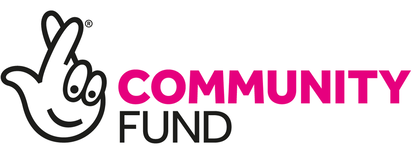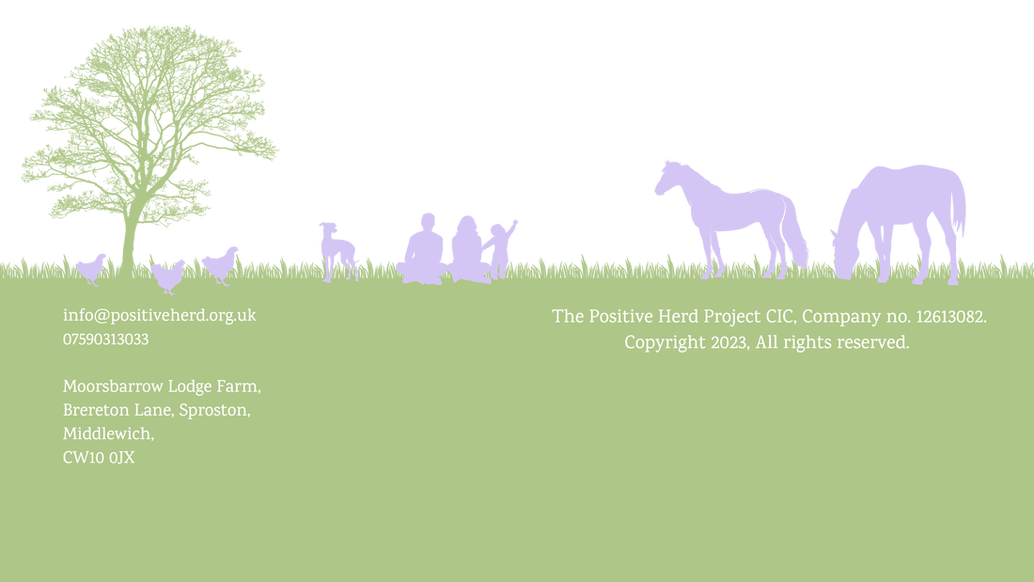|
Beth Gibbons I have not been able to spend a great deal of time with my horses recently. However, even in the short time I have spent with them I have been struck by how much of a bond we share. We haven’t had chance to do any training for a long time so they don’t expect anything of me. They are out at grass so I am no longer the bringer-of-food. Nevertheless they still routinely plod over to greet me, smell my hands and spend some time in my company. Some of them will even insist on following me around as I check the others. It makes me feel incredibly grateful and proud that my horses enjoy spending time with me like this. They are trusting, relaxed and inquisitive. At times I take this for granted and forget that these horses haven’t always enjoyed my company. It is only after years of gently and consistently building trust and positive experiences with them that we have established this relationship. You can’t force your horse to enjoy being with you, it is something which grows naturally. It comes from a deeper understanding of their needs and emotions, and building a mutual communication based on this. However, there are things you can do, or avoid doing, which will strengthen the bond you share. So, I’ve put together my top 10 suggestions for creating a trusting and meaningful relationship with your horse! 1. Do Nothing. The emphasis is always on what you DO with your horse, but not on what you don’t do. Sometimes the key is quiet times spent together doing nothing at all. Often we arrive, catch, brush, ride, feed, put back out and leave. This isn’t the best thing for building a positive relationship with your horse, because we become the precursor of the task. If this is not something your horse relishes, it is unsurprising that he might start to avoid you. By spending time in his company just hanging out he will soon realise that you don’t always arrive and expect something from him. In turn he will relax which allows for some real quality time together. 2. Observe. While you are spending all of this time just relaxing around the paddock in your horse’s presence, one thing you can do is watch his behaviour. In our usual hasty rush we miss really important and informative behaviours that give us an insights to our horse’s lives. If you watch them for a while you will notice subtle things like when and where they sleep and eat, whether they play and with who, who their favourite and least favourite herd members are. Notice how they interact with each other. Do they stand very close but barely touching? Do they mutually groom one horse more than the others? If there is any aggression when and where does it occur? Try keeping a diary of the things you notice and see if the patterns change over time. The more we watch and learn about our horses, the better we come to understanding their behaviour and motives. You are then in a more informed position to make decisions in your horse’s best interest. For example, if you notice he is very bonded to a particular individual you could ensure they stay together. In order to form a meaningful bond it is important to really understand your horse. 3. Respect. All relationships are built on respect, and that should be no different with your horse. I am not talking about groundwork and manners, I am talking about you respecting him as a species. We need to move away from viewing horses as commodities for our own pleasure, and realise them as individuals with their own needs. They need time to socialise, to wind down, and to just be a horse. Denying them the opportunity to express their natural behaviours creates a huge amount of stress. Chronic stress not only causes behavioural problems but also suppresses the immune system. It contributes to a multitude of health complaints and conditions, from ulcers to infection. In order to reduce stress you need to provide your horse with the opportunity to act out his natural repertoire of behaviours in his everyday life. This includes being able to eat, socialise and move around as he has evolved to do. Aim to provide unlimited forage such as hay, and as much time to move around freely as possible. Keeping him permanently with other horses will allow him to form lasting social bonds and act out social behaviours. Even a little tweak to the way you manage your horse can have an enormous impact on his overall well-being. The result will be a more relaxed, happier, healthier horse and the basis for a better relationship. 4. Enrich. In order to be fully content horses, like any species, need some form of enrichment in their everyday lives. An interesting and stimulating environment alleviates boredom, increases ‘feel good’ chemicals in the brain and can even make your horse better at problem solving! In scientific experiments animals raised in enriched environments have consistently denser, more connected brains than those raised in bare environments. Be creative with your ideas, a ball on a rope will get boring quite quickly. Instead try providing edible branches, hiding treats around, scratching posts, access to rivers and ponds or flavouring hay with herbal tea. Think outside the box and experiment with different ideas that target all the senses. The more you can change the enrichment, the more effective it will be! And the more your horse will thank you for it! 5. Communicate. Much of the way we communicate with our horses is by telling them what to do. But how many times have you actually tried to listen to what they say? If we offer horses some autonomy and choice in our interactions it can have amazing results. Next time you are with your horse be very aware of their response to your movements and actions. If they flinch away from your touch or an object don’t just continue regardless, be aware of it. They are expressing their concern about the task at hand. If we ignore this discomfort and force them to endure something they find frightening this is known as flooding, and will have negative psychological and behavioural implications. However, if we recognise this fear and break down the task into incremental steps then we are building trust. When your horse learns that you are sensitive to his reactions and will adapt situations rather than force him into them, then you will have a very trusting and confident companion. If you believe giving horses choice and responding accordingly to their behaviours causes dominance or naughtiness please see my other articles on these topics. 6. Investigate. Building on your attention to two way communication, you can begin to experiment and find out what your horse likes, simply tolerates or actually despises. When spending time with your horse in an open space do something such as stroking for a short time, then stop and watch his response. Starting with gentle stroking at the withers is a good idea as this is where horses groom each other, so most will tolerate being touched here. If he walks off you know he’s not too keen! Many horses don’t actually enjoy being touched and so won’t find this rewarding. If this is the case allow them the freedom to leave, it has just highlighted an area which gradually needs resolving. If there’s no response then he’s probably not that bothered by what you are doing. However, if he enjoys it he will seek you out when you stop. This way you know you’re onto a winner! If your horse is extremely fearful or aggressive please don’t attempt this, first seek advice from a well-qualified and reputable behaviourist. 7. Scratch. If your horse enjoys being touched you can spend a great amount of time finding the best itchy spots! A good scratch releases endorphins and pleasure chemicals into the brain, creating a positive association with you and strengthening your bond. This can really change the relationship between you and your horse from bad to good, providing they enjoy it and are choosing to participate. Give them a good massage up their mane and into their withers, aiming to get the tell-tale lip wiggle of satisfaction! It is a very simple and effective way to build a great relationship with your horse, after all it is how they interact with each other. If you are not comfortable with them trying to groom you back, simply stop scratching when they attempt it. They will soon learn that the best way to get a good scratch is to keep lips and teeth well away! 8. Let Go. It almost goes without saying, but if you want to improve your relationship with your horse you need to stop doing things he hates! A lot of what we do with horses is very unpleasant for them, verging on terrifying. However, if we truly want them to be happy and to have a better relationship with us we need to at least reduce the amount of negative experiences we put them through. No horse ever needed a high flying career to be happy, these are things that we do for our own gain. Whether it’s repeatedly drilling in that dressage test, travelling to every show of the season or flying after a hunt. The more the brain has negative experiences of stress, discomfort and fear, the more entrenched this pathway becomes. They develop a negative association with their work and also with you. If he’s having a really hard time coping then stop doing whatever it is. Allow him a break so that his body and mind can return to baseline, without constantly having the fight or flight response activated by stress. Then if it’s really something that you insist on doing together focus on reintroducing it gradually while making it as positive and stress free for him as possible. If you truly want a partnership then there needs to be something in it for both of you! 9. Be positive.
When teaching new things why not try teaching them using positive reinforcement? By using rewards rather than punishers to motivate the behaviour, you are making the learning experience equally as enjoyable for both parties. This increases motivation and enthusiasm from the horse, and also boosts the rate of learning. You then have a horse who wants to get it right as much as you want him to! In the dog training world the idea of positive reinforcement is becoming widely accepted as the most humane and effective form of behaviour change. However, the horse world is still lagging behind and not using this incredibly effective tool as readily. If used correctly positive reinforcement is just as effective with horses and can have incredible results! Imagine if your horse looked forward to training sessions and participated because he wanted to and not because he had to. This time spent together then works to strengthen the bond between horse and trainer rather than weaken it. It doesn’t have to be everything you do. Even if you just taught a simple behaviour such as standing still or picking up feet using positive reinforcement, it would have a positive impact on the rest of your time together. 10. Learn. Finally, never stop learning! With horses there is always so much to learn, and the more you learn the more you realise you don’t know! Seek to learn as much as you can about every aspect of his life. Aim to understand his natural behaviour and how this is affected by common management practises. Be aware of his body language, and look for signs of stress, discomfort or fear. Introduce yourself to the world or positive reinforcement training by contacting a local professional or reading reputable books on the subject. If you encounter a problem seek the advice of a well-qualified professional in the relevant field. There is also a lot of false information circulating with regards to the training, management and handling of horses. Always aim to be guided by your own moral code of ethics, and only listen to well qualified and reputable professionals. Tread with caution, listen to your gut and maintain an open mind. Ultimately, understanding your horse allows you to better meet his needs, provide exceptional welfare and ensure he is happy and healthy. When you are able to offer him a fulfilled life and respond to him effectively and compassionately, surely then you are the person he would choose. Nothing can be better for a trusting relationship and deep bond than this!
3 Comments
|
Archives
October 2020
Categories |
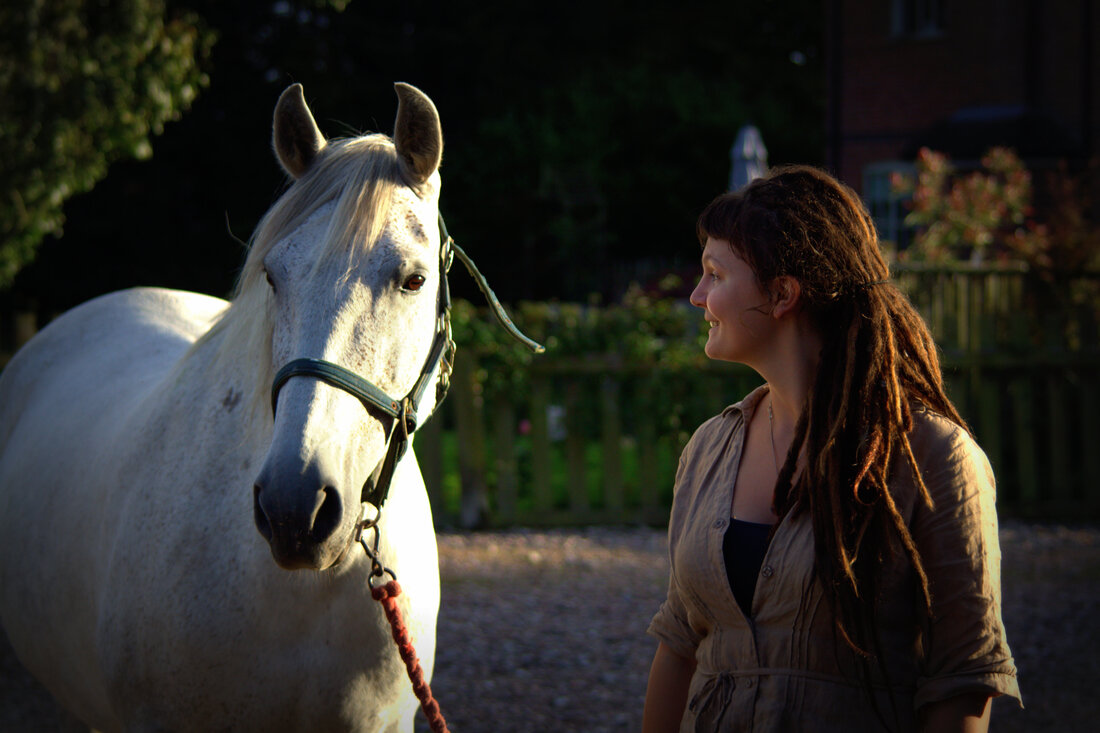
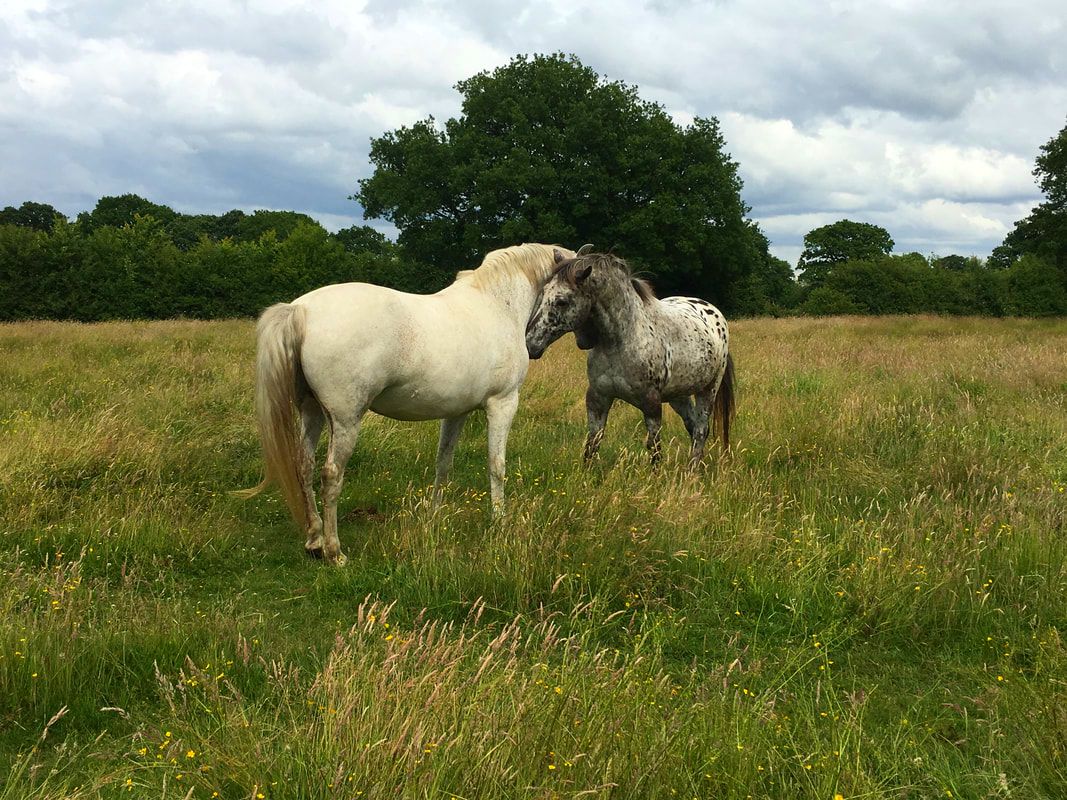
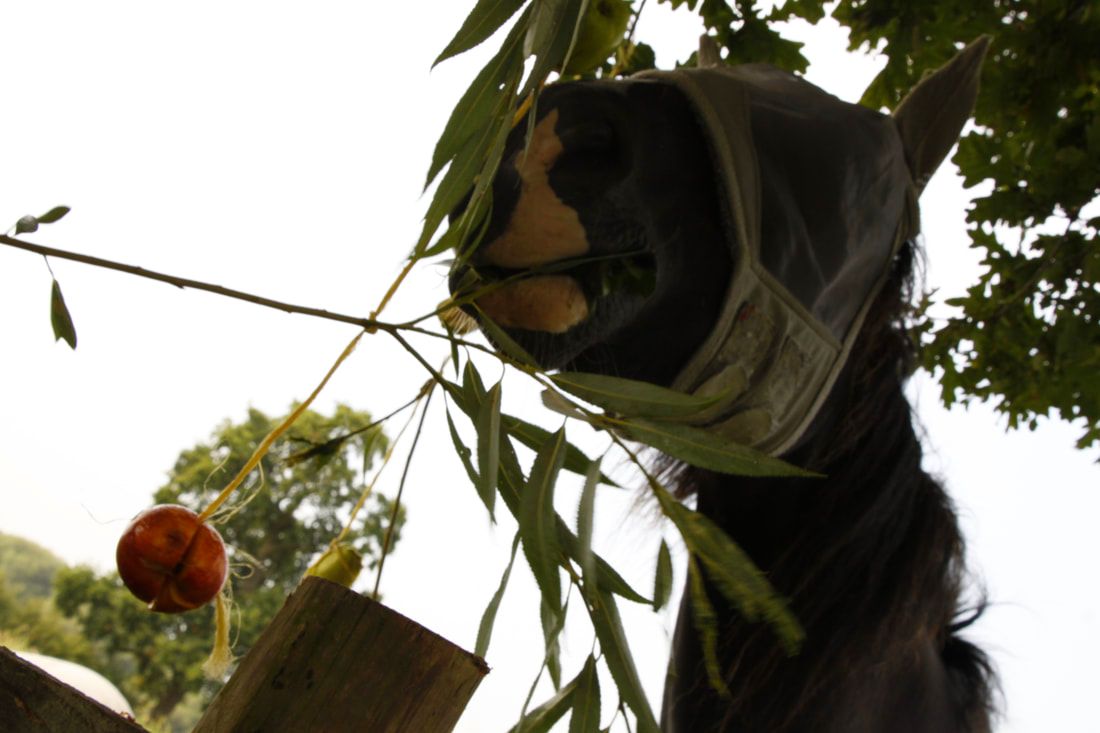
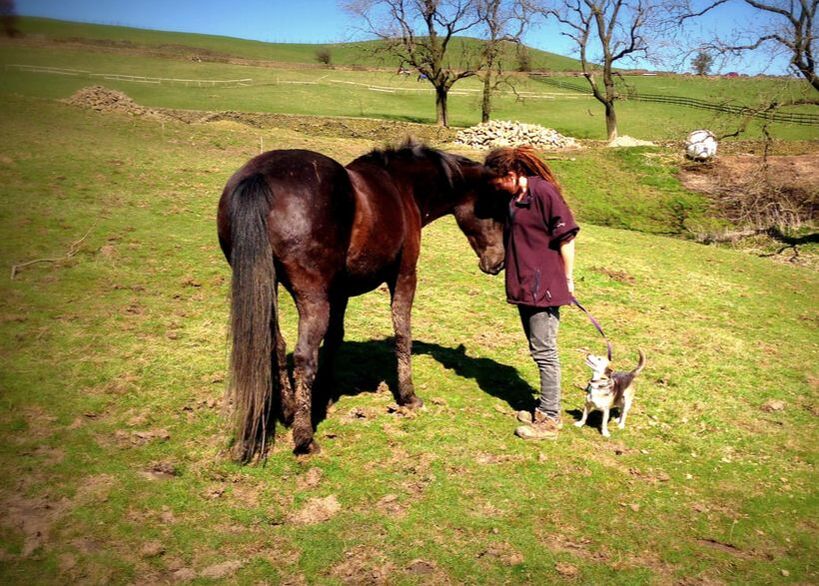

 RSS Feed
RSS Feed


